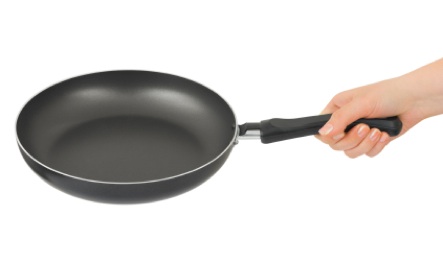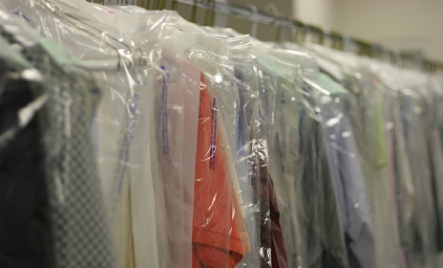
There are many things you can do to "detox" your home, some more practical than others. Here are my 20 suggestions:

No shoes in the house.
Most household dirt, pesticides, and lead come in on your shoes. Go barefoot or wear slippers. Place floor mats vertically by your entryways to wipe your shoes. This way more dirt and residue from your shoes stays outside on the mat.
Keep the air clean.
Keep your windows and doors open as much as possible to ventilate. Use green plants as natural air detoxifiers. Remove odors with baking soda. Use fresh flowers or bowls of herbs like rosemary and sage to add a pleasant fragrance to rooms. Have your air ducts and vents cleaned with nontoxic cleaners. Get a portable air cleaner/purifier, especially for the bedrooms.
Switch from the standard household cleaning products to cleaner and greener ones.
These don't damage your health or the environment's as much and work as well as the mass marketed ones. You can also use basic ingredients you have around the house, for instance, vinegar in place of bleach, baking soda to scrub your tiles, and hydrogen peroxide to remove stains. According to Annie Bond, the author of "Better Basics for the Home," she can clean anything with water and these five basic ingredients:Baking soda, washing soda, distilled white vinegar, vegetable-based liquid Soap (e.g., Dr. Bronner's Peppermint Soap), and tea tree oil.
Replace your skin care and personal products with less toxic and chemical-free options.
Deodorant, toothpaste, cosmetics, hair products, nail polish, and perfumes are often loaded with toxins. Learn how to identify them and avoid them.
Use plastics wisely
Some plastics contain Bisphenol A (BPA), which is linked to cancer, and phtalates, which are linked to endocrine and developmental problems. Avoid plastic food packaging (when you can). Don't wrap food in plastic. Don't microwave food in plastic containers. Choose baby bottles made from glass or BPA-free plastic. Avoid vinyl teethers for your baby. Stay away from children's toys marked with a "3" or "PVC." Avoid plastic shower curtains.

Avoid nonstick pans, pots, bakeware and utensils.
Teflon contains perfluorinated chemicals (PFCs) which have been linked to cancer and developmental problems.
Keep house dust to a minimum.
More dust means more toxins. Mop all surfaces at least once a week. Use a vacuum cleaner (with a HEPA filter, preferably) for your carpets. HEPA-filter vacuums capture the widest range of particles and get rid of allergens.
Avoid excess moisture.
It encourages the growth of mold and mildew. Check areas for moisture accumulation or leaks (particularly basements). Regularly clean surfaces where mold usually grows - around showers and tubs and beneath sinks.
Get a shower filter.
Many of the contaminants in tap water become gases at room temperature. A shower filter can help keep these toxins from becoming airborne.
Get a water filter.
More than 700 chemicals have been identified in drinking water. Filtering your tap water is better than drinking bottled water.
Avoid stain-guarded clothing, furniture and carpets.
These may contain PFCs. Wrinkle free and permanent press fabrics used for clothing and bedding commonly contain formaldehyde -- use untreated fabrics where possible.
Be conscious of toxins in carpeting.
Avoid products made from synthetic materials. Use natural fiber wool & cotton rugs. If possible, replace wall-to-wall carpeting with hardwood floors, all natural linoleum or ceramic tiles. Use nontoxic glues, adhesives, stains, or sealers for installation.
Seal (with a nontoxic sealer) or replace particleboard walls, floors or cabinets.
These often contain formaldehyde, which can emit irritating and unhealthy fumes for decades. Avoid plywood, fiberglass, fiberboard and paneling.
Avoid harmful pet-care products.
Avoid toxic pest control (including traditional termite exterminators).
Replace toxic lawn and garden pesticides and herbicides.
Use with less harmful natural ones.

Tell the dry cleaner not to use the plastic wrap.
Or remove it as soon as possible because the plastic traps the dry cleaning chemicals on clothes and in your closet. Let your dry cleaning air out (preferably outside) before storing it. Use "wet cleaning" if you are lucky enough to have it in your area.
Use low VOC, low-odor latex (water-based) paint.
Open all windows to ventilate properly when painting indoors.
Have your house checked for carbon monoxide leaks.
These are most commonly found in leaking gas stoves, gas fireplaces, furnaces and chimneys and gas water heaters).
Check Radon levels.
Inspect poorly ventilated basements that have cracked walls and or floors. Radon is an odorless gas that forms as uranium in rocks and soil breaks down. Radon is linked to lung cancer.
We can reduce our risk of chronic illness.
Limit exposure to these toxins but don't let this become an obsession which can cause so much stress that it creates more of a negative impact on your health than the toxins themselves.
And finally, no amount of environmental toxins are as important as emotional toxicity. You can do all the above, but if your house is full of anger, resentment, jealousy, unhappiness and a lack of love, compassion, and forgiveness, the house will remain toxic.
No comments:
Post a Comment